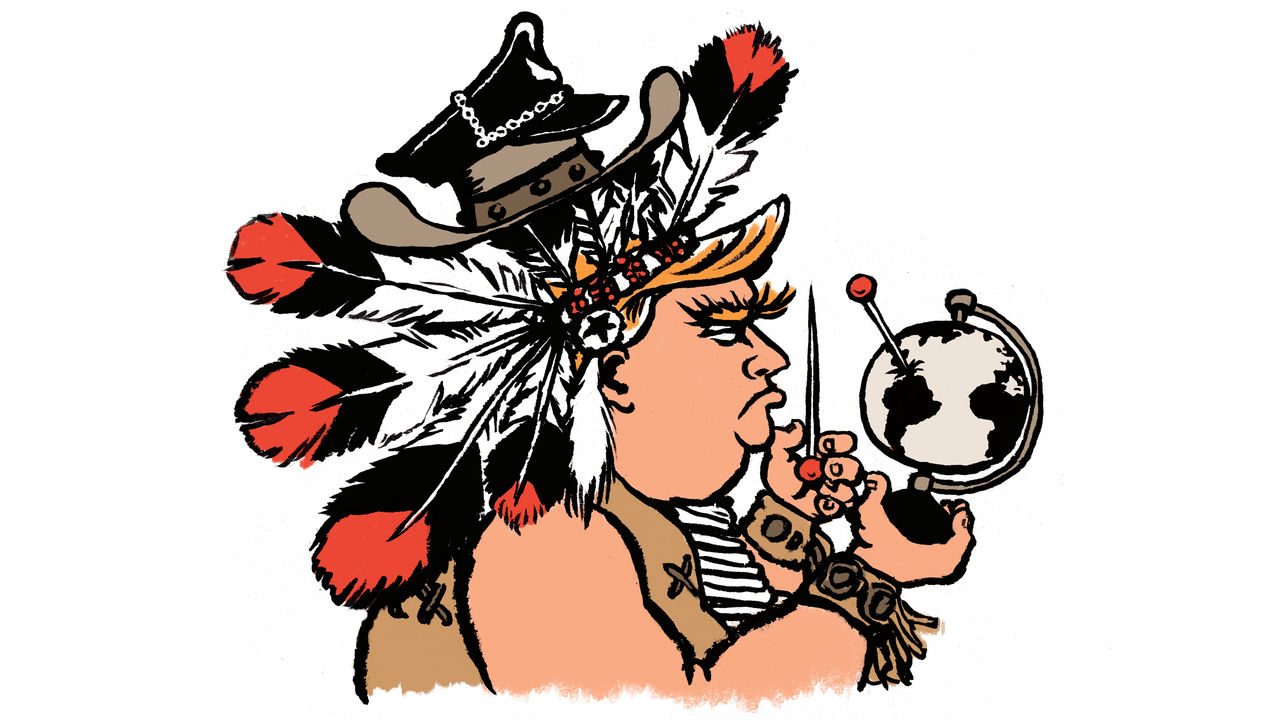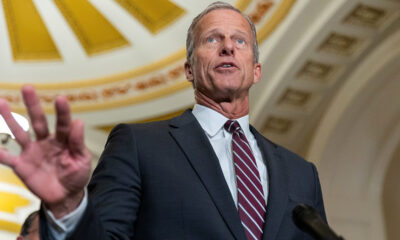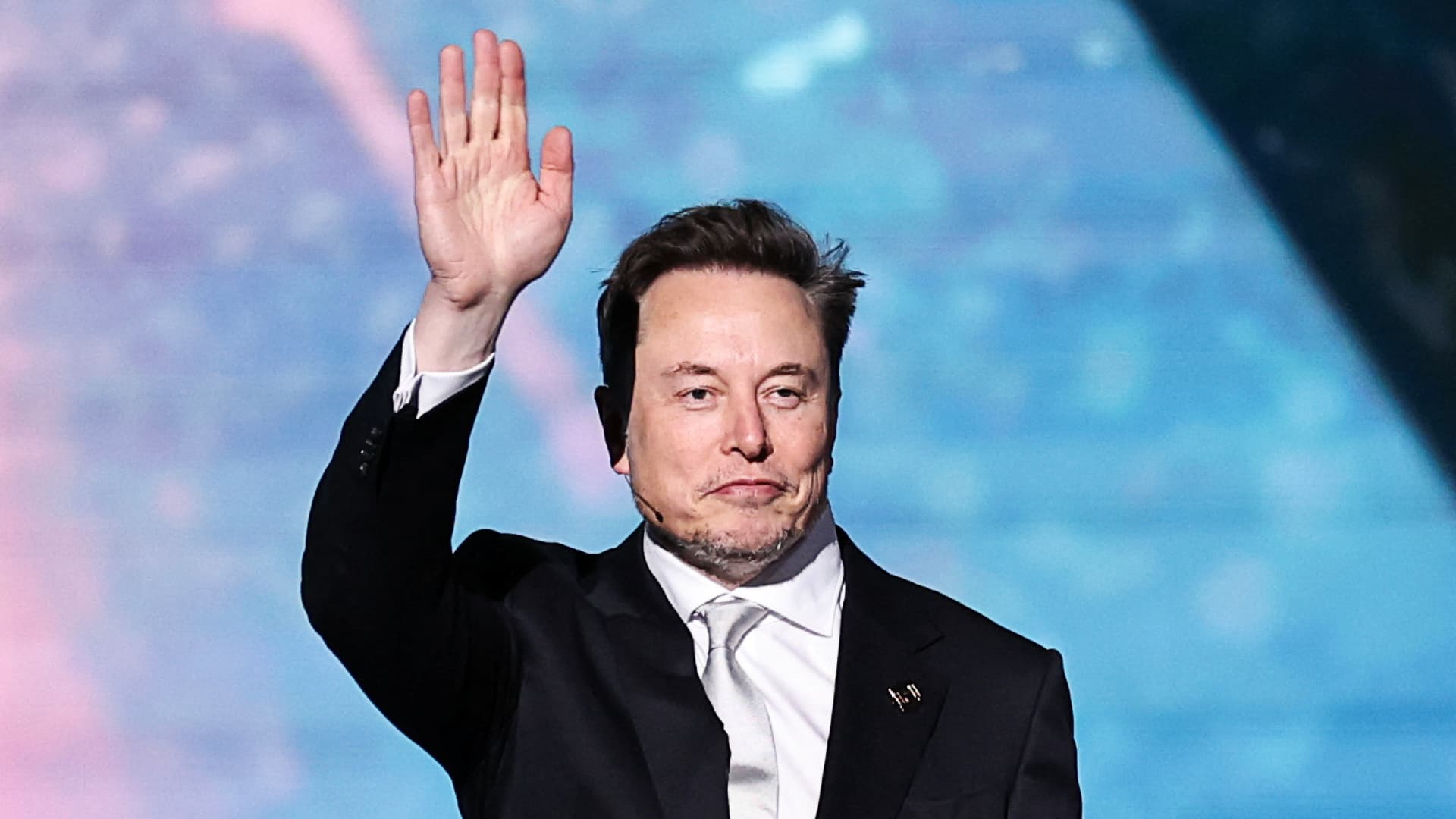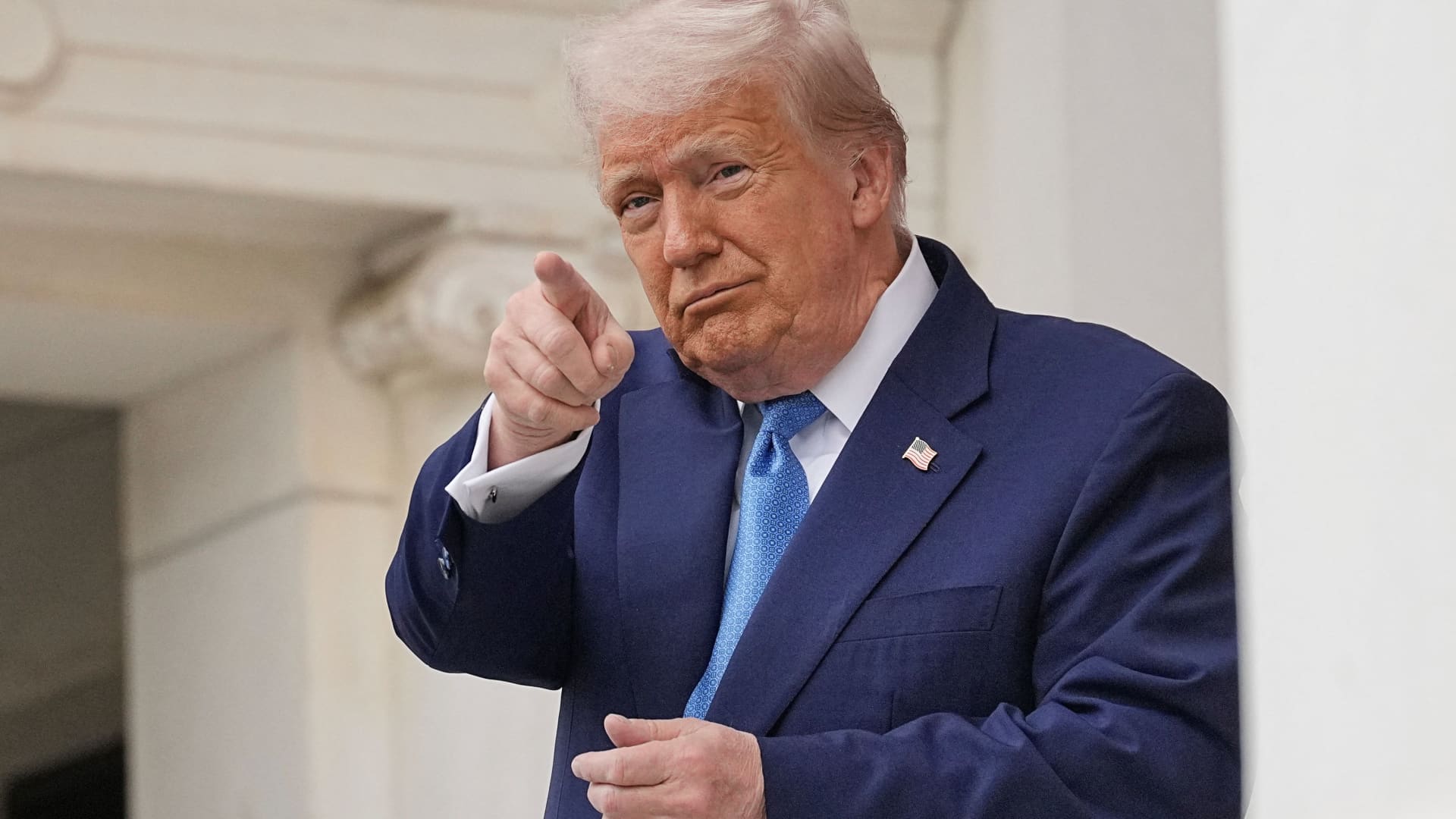Donald Trump invoked the 1890s in laying out the agenda for his second term. But from his demand for the Panama Canal to his declaration of a national energy emergency to his order releasing the records of the assassination of John F. Kennedy to the music he grooved to at his inaugural balls, Mr Trump, in his first days back in office, has instead evoked a different decade: the 1970s, formative years for him, and for America.
It was in 1971 that Mr Trump, then in his mid-20s, moved from Queens into Manhattan, taking a rent-stabilised studio apartment with a view of a water tank. He had ambitions to turn his father’s Brooklyn-based business building middle-class housing into something grander. By the decade’s end he would be a millionaire in his own right, married to a glamorous immigrant and a fixture at clubs like Studio 54, with growing celebrity for projects such as his eponymous tower rising on 5th Avenue.
As he exited the 1970s in his mid-30s, the apprentice years of adulthood behind him, Mr Trump, like many Americans, had reasons to be cynical about politics and business, to be fearful of inflation and oil scarcity and urban crime, to be drawn to conspiracy theories, to think America had lost the national self-assurance of his childhood in the 1950s. During what Tom Wolfe branded “The ‘Me’ Decade”, amid revelations of dirty deeds by sainted figures, as Americans more freely embraced and divorced each other, old ideas about duty and service came to seem like frauds. “Forget foundationless traditions, forget the ‘moral’ standards others may have tried to cram down your throat,” advised one bestseller in those years, “Looking out for Number One”.
“The 1970s were daunting and frightening because habits and institutions that had succeeded brilliantly for half a century suddenly sputtered,” David Frum writes in his history of the decade, “How We Got Here: The 70s”. “Never—not even during the Depression—had American pride and self-confidence plunged deeper.” The disillusion, fear and reaction of those years hardened into the worldview that has carried Mr Trump twice to the Oval Office.
At the start of the 1970s Mr Trump met Roy Cohn, the man who probably influenced him more than anyone besides his father, sharpening his reflex to fight all comers for every advantage, as he is doing now as president. A ferocious New York lawyer, Mr Cohn became Mr Trump’s mentor, “introducing him to the netherworld of sordid quid pro quos that Cohn ruled”, wrote Mr Trump’s dogged biographer, Wayne Barrett, in “Trump”. Over the course of the 1970s Mr Trump became the largest individual donor in New York state and local elections. “I can buy a US senator for $200,000,” he once told an associate back then.
Revelations spilling out of the Watergate investigations were teaching all Americans similar lessons, and implicating more than just President Richard Nixon. America’s great corporations for years had evaded the law with donations to politicians of both parties. Not only Nixon had secretly recorded meetings in the Oval Office. So had Lyndon Johnson and John Kennedy.
In 1976 Congress for the first time created a permanent committee to oversee the intelligence agencies, and it revealed shocking secrets about coups and assassinations by the CIA. Then came revelations about the FBI. Robert Kennedy himself had ordered wiretaps on Martin Luther King. As suspicions of skulduggery grew, Congress in 1976 ordered investigations into the assassinations of John Kennedy and King. Hollywood seized on the spectre of rot in America’s foundations for the plots of such movies as “Three Days of the Condor”, about CIA murders of Americans, “Chinatown” and the “Godfather” series. Mr Trump’s response in 2017 when an interviewer called Vladimir Putin a killer—“You think our country’s so innocent?”—was straight out of the 1970s.
Government was coming to seem not just corrupt but incompetent. New York City teetered at the edge of bankruptcy as officials struggled to stem rising theft and homicide. “Welcome to Fear City” read pamphlets bearing a death’s head that police officers in casual clothes handed out to tourists in 1975. During a citywide blackout in 1977, chaos swept the streets, resulting in hundreds of injuries to police officers and thousands of arrests for looting. One might well have called it American carnage.
Four years of the condor
Nationally, new laws in the 1960s led to a surge in immigration in the 1970s, and illegal immigration along with it. Backlash was building against new rights granted to non-citizens, as it was against policies meant to advance integration and equality such as affirmative action and busing. Mr Trump first hired Cohn to defend him against a Justice Department suit accusing the Trumps’ company of excluding black renters. Asked at a deposition in 1974 when the first black people moved into one of his projects, Mr Trump replied, “I don’t care and I don’t know.” He was insisting on the same sort of “colour-blindness” he declared in his inaugural address this month to now be government policy.
Mr Trump once lamented that during the 1970s America lost “the feeling of supremacy that this country had in the 1950s”. In the 1970s, ceding control of the Panama Canal divided conservatives. In a televised debate with Ronald Reagan, William Buckley, the founding editor of National Review, said turning the canal over would bring Americans “increased security and increased self-esteem”. Time has proved him correct as far as security goes. But to many on the right the treaty with Panama became an exhibit of the same weakness that led to failure in Vietnam and the Iranian hostage crisis. Mr Trump’s pledge to retake the canal is a direct assault on the 1970s, and it underscores a basic question about his second term: will he lead Americans to transcend that decade at last, or to wallow in it? ■
Subscribers to The Economist can sign up to our new Opinion newsletter, which brings together the best of our leaders, columns, guest essays and reader correspondence.

 Accounting6 days ago
Accounting6 days ago
 Economics1 week ago
Economics1 week ago
 Personal Finance6 days ago
Personal Finance6 days ago
 Accounting6 days ago
Accounting6 days ago
 Finance5 days ago
Finance5 days ago
 Economics1 week ago
Economics1 week ago
 Economics6 days ago
Economics6 days ago
 Economics6 days ago
Economics6 days ago



















